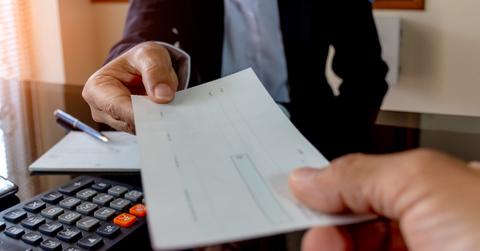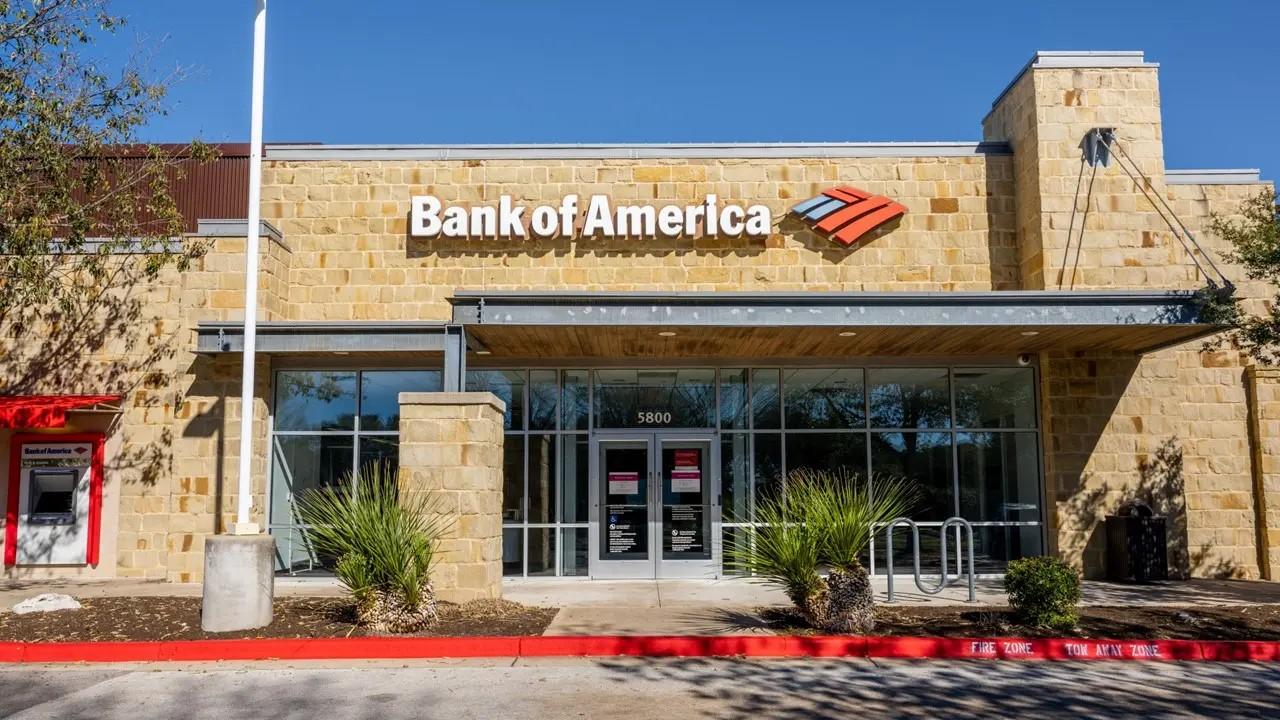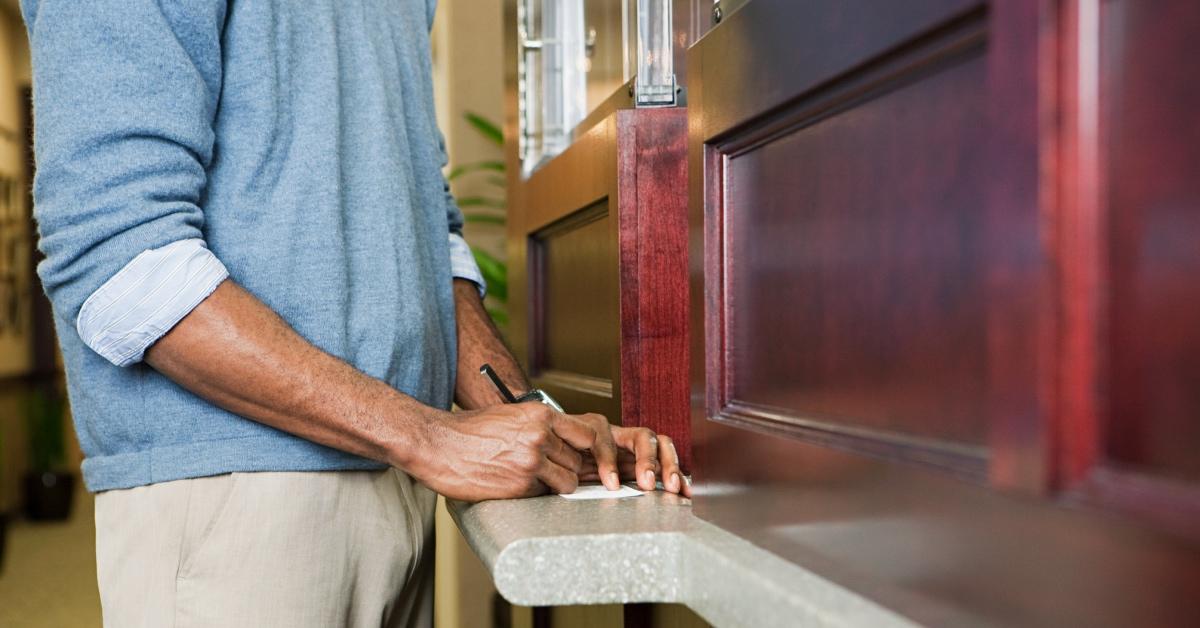Cashier’s Check vs. Certified Check — What’s the Difference Between the Two?
Cashier’s checks and certified checks are safer methods of payment than personal checks or cash. But what's the difference between them?
March 16 2023, Published 3:31 p.m. ET

- What is a cashier’s check?
- How do you get a cashier’s check?
- What is a certified check?
- Getting a certified check is a straightforward process.
- Key differences between a cashier’s check and a certified check.
- What are the pros and cons of using a cashier’s check?
- What are the pros and cons of using a certified check?
If you’re looking to make a large purchase like buying a car or need to satisfy an expensive bill like rent, there’s a good chance you’ve contemplated getting a cashier’s check or certified check to do it. Banking institutions issue cashier’s checks and certified checks. They're both safer methods of payment than personal checks, cash, or sending money via a third-party app.
So, what is the difference between a cashier’s check and a certified check?
Cashier’s checks and certified checks serve the same purpose — to make a purchase or satisfy a down payment. However, there are key differences between the two that you need to be aware of. Below you’ll find a general overview of what certified checks and cashier’s checks are and what makes them different from each other.
What is a cashier’s check?

Cashier's checks are common forms of payments for large purchases.
A cashier’s check is a type of check that can be conveniently purchased from a bank or credit union or ordered online (from an institution) and delivered to your door. These checks are usually used for a down payment on a home or car or to cover the cost of any major purchase.
Cashier’s checks are among the safest forms of payment because they're backed by the institution's funds. That means the institution is liable for fulfilling the amount if the check bounces, which rarely occurs. Read on to find out how they work.
How do you get a cashier’s check?
To obtain a cashier’s check, visit your local bank or credit union. You'll need to bring with you the exact amount of cash you want to purchase the check for. The institution will only issue you a check based on the amount of cash you provide. You’ll also need to have a picture ID on hand, such as your driver’s license, and know who your payee is.
The bank will list the payee on the cashier’s check.

Some banks require that you have an active bank account in order to purchase a cashier’s check. In that case, you can try a different bank or obtain the cashier's check from a credit union. In terms of pricing, cashier’s checks usually cost $10–$20. If you’re a Chase account holder, you can purchase a cashier's check through your online account, though you’ll incur a $20 fee.
While most banks charge around $10–$15 for a cashier’s check, the type of account you have and your balance might entitle you to have the fee waived. You can check with your bank to find out more about this.
What is a certified check?
A certified check is a type of check you can obtain from a bank, and possibly a credit union. Like cashier’s checks, certified checks act as a safer alternative to personal checks because the bank ensures the check is valid and that there's enough money in the account.
However, because the money comes from your bank account as opposed to you paying in cash, you're responsible if the check is returned for insufficient funds. This might happen if the recipient holds onto the check for an extended period of time and the money is no longer available in your account when it comes time for them to cash it.
Getting a certified check is a straightforward process.

Certified checks can be obtained from banking institutions.
To get a certified check, you’ll need to have an open account with a bank or credit union and a government-issued ID. Certified checks can't be purchased with cash, which is why you have to be a customer of the institution. When obtaining a certified check, banks typically require that you write out a personal check (which many of us rarely have these days) and fill it out in front of the teller.
After confirming your identity and assuring you have enough funds to cover the check’s amount, the teller will certify the check with an official bank stamp. Now, because certified checks are relied on less these days, it may be harder to find a bank or credit union that offers them.
As for pricing, certified checks generally cost around $10, although you might be able to find them cheaper.
Key differences between a cashier’s check and a certified check.
Now that you know what cashier’s checks and certified checks are, let’s take a look at a few differences:
- Cashier’s checks are safer than certified checks because the bank guarantees the funds.
- Cashier’s checks are more common than certified checks, so they may be easier to find.
- A bank or credit union will issue you a paper check when buying a cashier’s check as opposed to you having to fill out a personal check when obtaining a certified check.
- The bank is liable for a cashier's check that bounces. You're liable if your certified check is returned for insufficient funds.
One thing the two methods of payment share in common is processing times. By law, banks must make funds deposited by cashier’s check or certified check available the next business day following the day it was deposited, per the Connecticut General Assembly website.
Because banks typically clear cashier’s checks and certified checks faster than personal checks, if either is identified as fraudulent weeks later, you will be liable for paying that money back.
What are the pros and cons of using a cashier’s check?
| Cashier's Check Pros | Cashier's Check Cons |
|---|---|
| Safer method of payment | Expensive |
| Can be purchased from a bank or credit union (or online) | Usually cannot stop payment |
| Clears faster than a personal check (next business day) | May need an active bank account |
| Bank guarantees the check if it bounces |
What are the pros and cons of using a certified check?
| Certified Check Pros | Certified Check Cons |
|---|---|
| Cheaper than cashier's checks | Cannot be purchased online |
| Clears faster than personal checks (usually next business day) | Usually require a bank account |
| An added step of security that certifies funds are available | May not be able to stop payment |
| May need a personal check | |
| You are responsible if the check bounces |
Determining whether to buy a cashier’s check and a certified check depends on the level of security you’re seeking as well as how much you’d like to spend in fees.
